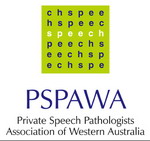|
|
 |
 |
 |
 |
|
 |
|
|
|
What is stuttering ?
Stuttering is a speech disorder where the person knows what they want to say but at the time can’t say it because of a problem in the control and flow of their speech.
There are different types of Stuttering:
- Repetitions of sounds, syllables, words or phrases
- e.g: “I, I, I, I want that.”, “Wh, Wh, What’s that?” “Can I, Can I, Can I come too?”
- Prolongations or stretching out a sound at the beginning or in the middle of a word e.g: “Rrrrrabbit”
- Blocks where the person “gets stuck” and can’t say the sound or word.
There may also be unusual movements of the face and body associated with the stuttering.
Do all people stutter to some extent ?
Young children may go through a stage of “non-fluency” in early speech development where they may use repetitions similar to those of children who stutter. A Speech Pathologist is able to distinguish between these non-fluencies and stuttering. Adults may use interjections such as "Um..", "Well..", and occasionally repeat words and phrases without these being considered as stuttering.
Does Stammering mean the same thing as stuttering ?
Yes. In Australia we generally use the term stuttering.
What causes stuttering?
Stuttering is currently believed to be a speech motor disorder, where the speech muscles become “overloaded” and they trip up at the beginning of a sentence. It is caused to some extent by genetic factors, and often a history of stuttering is known within the family. Once a child begins to stutter there are common factors that typically trigger an increase in the frequency or severity of stuttering. These triggers may include excitement, tiredness, and competing for a turn to talk. Four times as many boys as girls stutter.
Is stuttering caused by emotional or psychological problems ?
No. Children who stutter are no more likely to have psychological problems than children who do not stutter. Whilst emotional factors can worsen stuttering, there is no evidence that this is the cause for stuttering to begin.
At what age does stuttering usually occur ?
Stuttering typically begins between 2 and 4 years of age.
What should I do if my child begins to stutter? Should I wait or seek help ?
You should seek an assessment by a Speech Pathologist as soon as you become concerned. Whilst it is possible for a child to recover naturally from stuttering, it is also possible that stuttering can become a lifelong, chronic speech disability. Early stuttering very typically occurs in cycles. Episodes of stuttering may occur for days or weeks, followed by apparent recovery where the stuttering may stop or decrease in frequency and/or severity. Often the stuttering reoccurs. These cycles can persist for long periods of time, typically worsening with each reoccurrence. It is therefore still advisable to have your child assessed by a Speech Pathologist even if the stuttering appears to have gone away.
Once stuttering has begun, can it be treated ?
Stuttering in children can be very effectively treated, particularly in the early preschool years, i.e. before the age of 6 years. Treatment programs are available for adolescents and adults but because their speech muscles are no longer as flexible as those of younger children, treatment techniques for these groups of people are directed at teaching them how to control their stutter rather than eliminating it from their speaking altogether. A Speech Pathologist is trained to deal with people of all ages who stutter.
What should I do when I hear a child stutter ?
Simply maintain eye contact and allow the child to continue in their attempt to speak. It is important to not try to help by giving suggestions such as "Stop and try again", "Think about what you want to say and try again", "Slow down". These comments can worsen the child's stutter rather than help. A Speech Pathologist will be able to advise you on the best ways to help your child.
What should I do when I hear an adult stuttering ?
As with children, it is important to maintain eye contact and pay attention to what is being said and allow the speaker to continue with their attempt to speak.
Terms that may be used in the topic of stuttering
stammering, dysfluency
Useful Websites
Australian Stuttering Research Centre - What is Stuttering ?
PSPAWA Members who work with stuttering
|
|
|
|
|
|
|
|
|

